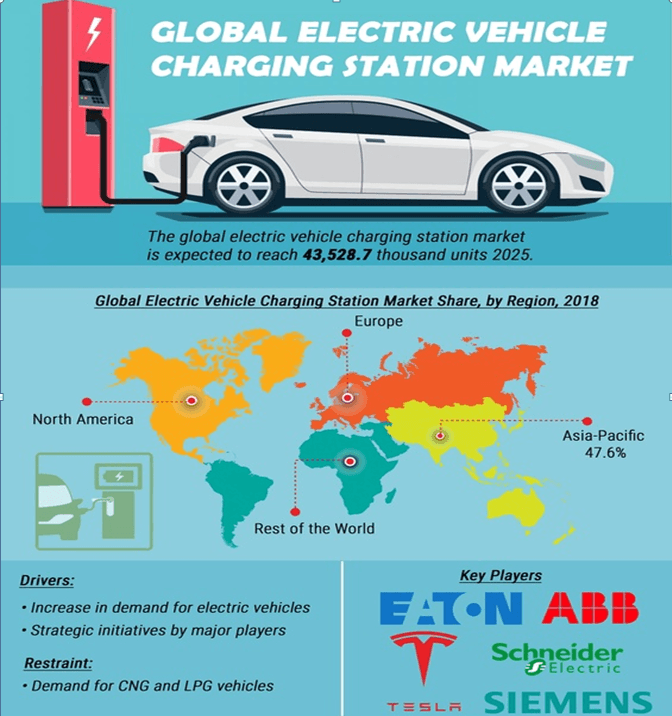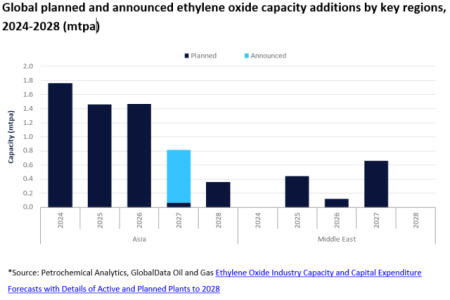
Greensboro, North Carolina – Fuel retailers see EV charging as a critical battleground for retaining customers, with 88% concerned about the impact of growing competition as drivers plug in at homes, workplaces and destinations, according to a new survey by Konect, a Gilbarco Veeder-Root business.
Forecourt operators are under pressure to adapt to a fast-changing mobility ecosystem, as consumers become more sustainability-savvy and federal and state regulations align behind electric vehicles.
The latest IEA data forecasts 71% of new passenger cars and 72% of new light duty trucks / commercial vans in the United States will be electric by 2035, reducing the country’s fuel consumption by 2.5-million barrels per day. Meanwhile, Boston Consulting Group believes 80% of forecourts could become unprofitable by that date unless they adapt to changing demands.
However, EV charging is also an opportunity for forward-thinking fuel retailers. The NREL is predicting the U.S. will need 1.25m public chargers by 2030, providing critical infrastructure for long journeys, fleets and drivers who can’t plug in at home.
With convenient locations, desirable amenities suited to longer dwell times, and robust uptime standards, forecourts are well placed to host a share of that network, introducing a profitable new revenue stream that also supports existing products and services.
Fuel retailers recognize those opportunities. Most (85%) respondents expect demand for charging to increase over the next five years, while 41% of those who already offer EV chargers said they had done so to boost foot traffic at other on-site facilities, such as C-stores, restaurants and cafés.
The results also reflect widespread concerns about return on investment (ROI) – a factor which ranked as the most important factor when assessing new business opportunities. Price competition (89%) keeping pace with changing technology (86%) and maintaining service levels (82%) were common concerns as the market trends towards EVs. Meanwhile, high investment costs (40%), uncertain ROI (29%) and complicated installations (28%) were the most common barriers among retailers who have yet to invest in charging.
Om Shankar, Vice President & General Manager, Konect, commented: “Our research shows fuel retailers across the United States are already making a success of EV charging by fully integrating it into their business. By looking beyond selling electrons, they’re complementing existing revenue streams while enjoying the fastest possible return on investment.
“However, we also recognize that this process can seem daunting. Konect’s solution is designed to alleviate fuel retailers’ concerns, enabling them to deploy their own robust, profitable EV charging and compete for a slice of tomorrow’s more diverse mobility ecosystem.”
Konect’s survey of 633 U.S. fuel retailers shows a clear path to profitability for businesses who are willing to embrace EV charging and integrate it into their business model, focused on three critical steps:
- Owning the infrastructure: Half (51%) of those who offer EV charging own at least some of that infrastructure – and there is federal and local funding to support that investment. Ownership offers more control over the customer journey than hosting for a third party, including setting competitive pricing and introducing customer incentives to encourage loyalty and gather valuable data.
- Managing customer experiences proactively: EV drivers expect charging to be as reliable and convenient as filling with fuel, and meeting those expectations can complement other revenue streams. Among those who offer EV charging, two thirds (69%) of C-store operators and 49% with a restaurant or café, said it was aimed at increasing in-store traffic, while 66% are using footfall and sales as a measure of ROI.
- Integrating technology seamlessly: Charging should be part of the wider forecourt ecosystem, maximizing uptime and reducing costs while enhancing efficiency and customer satisfaction. More than half (55%) of retailers with EV charging have deployed energy management solutions, while 21% expect smart payment systems will be the most valuable addition to their business over the next five years.
Konect’s EV charging ecosystem is designed specifically for the forecourt environment, and empowers fuel retailers to deploy their own robust, profitable infrastructure. This unique turnkey solution includes support with site selection and funding applications, installation and integration on-site sales and energy management systems, and comprehensive in-life technical support utilizing Gilbarco Veeder-Root’s experienced field team.



